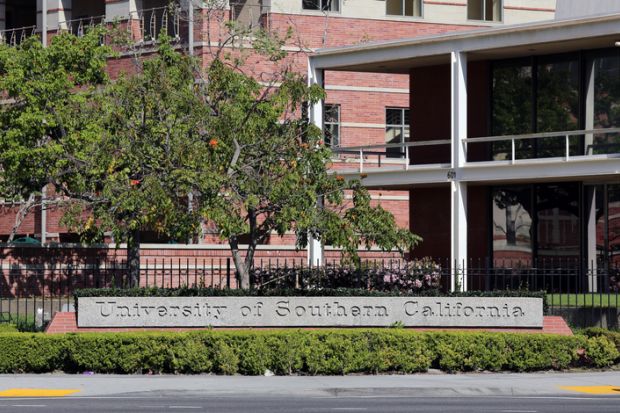The first court trial in the US college admissions scandal opened with two wealthy parents emphasising the long-standing practice of top universities granting admissions favours in return for financial donations.
The defendants – Gamal Abdelaziz, a former executive of the casino operator Wynn Resorts, and John Wilson, founder of a Massachusetts equity firm – are accused of paying hundreds of thousands of dollars to get their children admitted to elite institutions.
They are the first to reach trial after the overwhelming majority of defendants pleaded guilty, and they signalled their intent to force the jury to assess their behaviour against long-normalised practices of donor favours.
“John thought he was making legal, legitimate donations,” Mr Wilson’s lawyer, Michael Kendall, told jurors in his opening presentation in federal court in Boston. “If he thinks the money is going to the school, that’s not bribery,” said Mr Abdelaziz’s lawyer, Brian Kelly.
The two are among 57 defendants, mostly parents, charged in the scandal since it was made public in March 2019. It centres on a Los Angeles-area admissions adviser, William Singer, who for years offered parents a “side door” route for converting their wealth into elite college admissions offers for their children.
Unlike the legal “back door” method of making large donations to universities and being rewarded with admissions preferences, Mr Singer’s method usually involved key administrators who would enable superficial attempts to portray academically inferior applicants as legitimate candidates for positions on their university sports teams. Some cases also involved falsified standardised test scores.
That strategy, Mr Singer said in a recorded interview with federal investigators presented to the jury, generally finds success at a much lower cost than the size of donation that institutions typically want in return for accepting students they otherwise would not admit.
But that option, as prosecutors have stressed from the day they revealed the scandal in 2019, is not considered legal because it involves payments to individuals rather than gifts to the institution.
That distinction – and the understanding that Mr Abdelaziz and Mr Wilson had of it – is the central point that the two fathers have shown themselves as determined to highlight at their trial, after many other wealthy defendants chose to give up and admit guilt.
Mr Wilson allegedly paid $220,000 (£160,000) to get his son admitted to the University of Southern California as a water polo player, while Mr Abdelaziz allegedly paid $300,000 to get his daughter admitted to USC as a basketball player. Mr Wilson also allegedly worked with Mr Singer to pay another $1.5 million to help his daughters get admitted to Harvard and Stanford universities.
The overall scandal allegedly involved at least eight universities and more than $25 million in bribes. Of the 57 defendants charged, 46 including Mr Singer already have pleaded guilty, and one was pardoned by former president Donald Trump. Four more parents and four university athletic officials are scheduled for trial in coming months.
Most of the parents already have been sentenced, typically to jail terms of about three months and fines of about $100,000. The most publicised cases involved the actors Lori Loughlin and Felicity Huffman.
The scandal has put a particularly heavy spotlight on USC, which by far had the most individual cases, and which later admitted after a review that it had been accepting about a dozen students a year as athletes although they did not actually compete in sports.
A former senior associate athletic director at USC, Donna Heinel, has been portrayed as Mr Singer’s key inside partner at the university. She has pleaded not guilty, with her upcoming trial and the current trial of Mr Abdelaziz and Mr Wilson expected to provide greater exposure of how USC may have encouraged donations through its admissions practices.
Prosecutors, however, have been arguing that the parents knew they were seeking fraudulent admissions, regardless of whether they regarded their payments as donations.
Their presentation could be complicated, however, by their apparent reluctance to call Mr Singer as a witness, even though he has been cooperating in the case. Defence lawyers described Mr Singer as having kept private notes accusing federal investigators of pressing him to lie to parents in the secretly recorded discussions he had with them after he agreed to help the government amass evidence.
Register to continue
Why register?
- Registration is free and only takes a moment
- Once registered, you can read 3 articles a month
- Sign up for our newsletter
Subscribe
Or subscribe for unlimited access to:
- Unlimited access to news, views, insights & reviews
- Digital editions
- Digital access to THE’s university and college rankings analysis
Already registered or a current subscriber? Login







